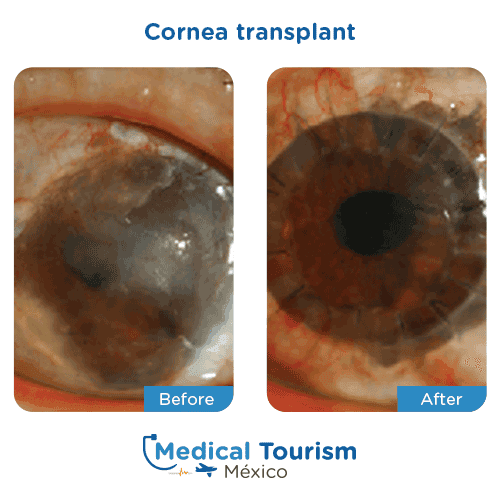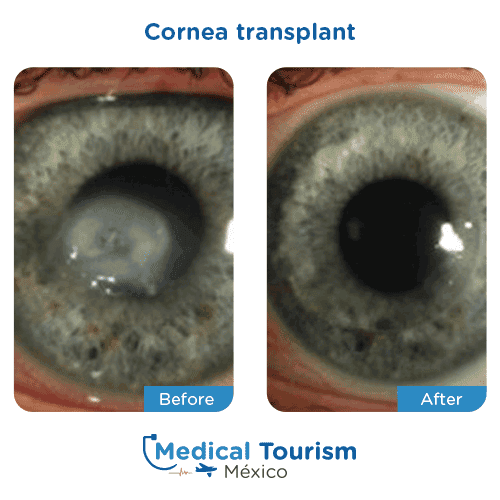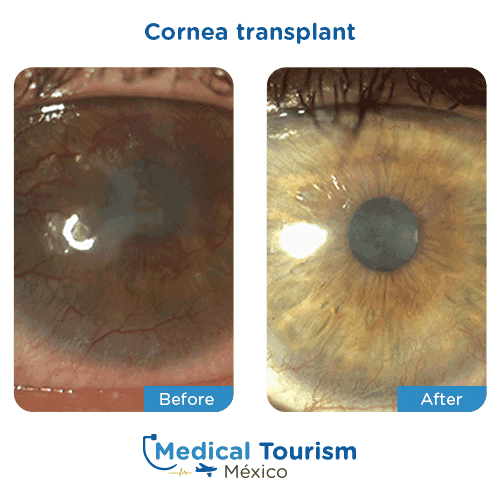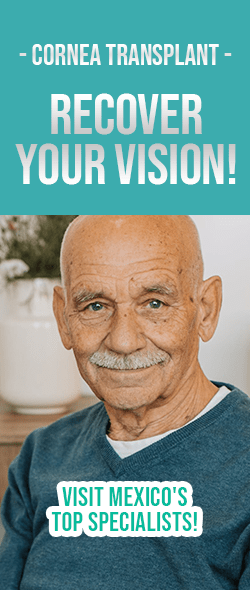The most reliable doctors in Mexico
Cornea transplant information and locations in Mexico
Also known as keratoplasty, a corneal transplant seeks to replace a damaged cornea with a new
one from a donor to restore the patient’s vision. This is a same day procedure.
With a cornea transplant, the patient’s vision can be restored and reduce the pain caused by the
damaged cornea. Depending on the condition of the patient the transplant might be full or
partial; in which only a small part of the cornea is replaced, such as the endothelium.
Remember that first, you need to consult your eye specialist to find a suitable transplant. In order to qualify in the transplant waiting list, you need to reside for 6 months in Mexico before surgery.
Remember that first, you need to consult your eye specialist to find a suitable transplant. In order to qualify in the transplant waiting list, you need to reside for 6 months in Mexico before surgery.
Travel to the best locations for cornea transplant and enjoy what Mexico has to offer!
Benefits
Restores lost vision
Fast procedure
High success rates
Reduces the need for medication
Fast procedure
High success rates
Reduces the need for medication
Cornea transplant
Procedure:
1 hr.
Hospital stay: 30 min - 1 hr.
Cleared to fly: 2 - 14 days
Hospital stay: 30 min - 1 hr.
Cleared to fly: 2 - 14 days
After surgery
Out of town patients’ follow-ups are scheduled with the ophthalmologist after 7 - 15 days from a cornea transplant.
Patients are clear for flying after 2 - 14 days from a cornea transplant.
Note: Follow-ups can be arranged as face-to-face or virtually. If needed, you can go to your primary care physician to remove sutures or get medication adjustments.
As an Amazon Associate, we earn from qualifying purchases.
Take a look at one of our medical tourism essentials for eye surgery.
Take a look at one of our medical tourism essentials for eye surgery.
Before and after images
View before and after pictures from real patients.
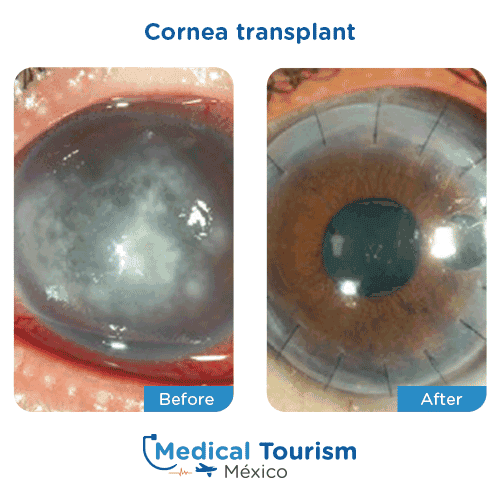
View more
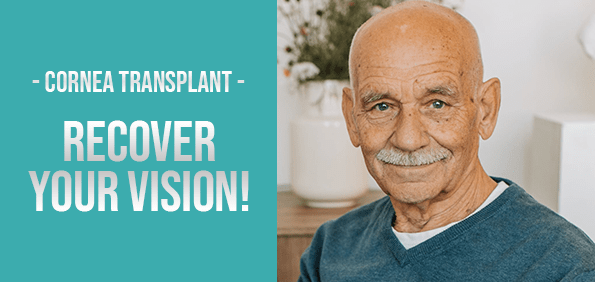

Locations
Select the city of your choice to seethe doctors profile.
Ciudad Juarez, Chih.
Dr. Luis R. Juárez
View more

Cornea transplant frequent questions
Get answers to our most frequently asked questions and what to expect after the surgery.
Am I a candidate for corneal transplant?
Candidates for surgery are patients who experience swelling, abnormal growths or other disorders on the cornea that could cause them to lose the visual ability. We recommend you to refer to one of our professional doctors for an evaluation to determine if you are a candidate for surgery.
How do I get a donor?
This could be the most complicated part of the procedure.
In Mexico is required for foreign patients to reside in the country for 6 months in order to qualify for the organ donor wait list. Being on the waitlist doesn’t mean you will get the cornea immediately and might have to wait longer than 6 months.
Most surgeons recommend you have a relative willing to donate their cornea in order to assure the procedure
Note: this information does not constitute legal advice and is meant only as a guide. For more information consult the Centro Nacional de Transplants https://www.gob.mx/cenatra
In Mexico is required for foreign patients to reside in the country for 6 months in order to qualify for the organ donor wait list. Being on the waitlist doesn’t mean you will get the cornea immediately and might have to wait longer than 6 months.
Most surgeons recommend you have a relative willing to donate their cornea in order to assure the procedure
Note: this information does not constitute legal advice and is meant only as a guide. For more information consult the Centro Nacional de Transplants https://www.gob.mx/cenatra
How can I prepare for surgery?
The specialist will evaluate your eye to determine the state of your cornea. Doctors will usually ask you to drop some medications, usually 2 weeks before surgery but some can still be taken up to 2 days before. We recommend you to refer to one of our professional doctors to learn how to prepare.
Will I feel pain during surgery?
The doctor will place drops on your eyes to numb them, during surgery will only feel some pressure on the eye. Some patients may ask the surgeon to use general anesthesia. We recommend you to refer to one of our professional doctors to see what is better for your body.
What happens after surgery?
Immediately after the procedure, you could experience some itch witch a burning sensation, and your eyes will be watery. At first, your vision will be blurry for the first weeks after surgery, and you will gradually start seeing more clearly.
Recent news
Article
First Artificial Cornea Transplant in England Restores Vision
Doctores Especialistas on August 20, 2025

Disclaimer: This information does not reflect the medical advice from our clinics. All cases are different and this treatment may not suit you. Always refer to a medical professional with the certification and experience. All of our physicians are fully qualified to perform these procedures. For more information and diagnosis contact one of our top specialized clinics.
In all medical procedures, there are chances of complications, the specialist will provide you detailed information about the risks of the procedure, talk to the specialist directly.
In all medical procedures, there are chances of complications, the specialist will provide you detailed information about the risks of the procedure, talk to the specialist directly.

